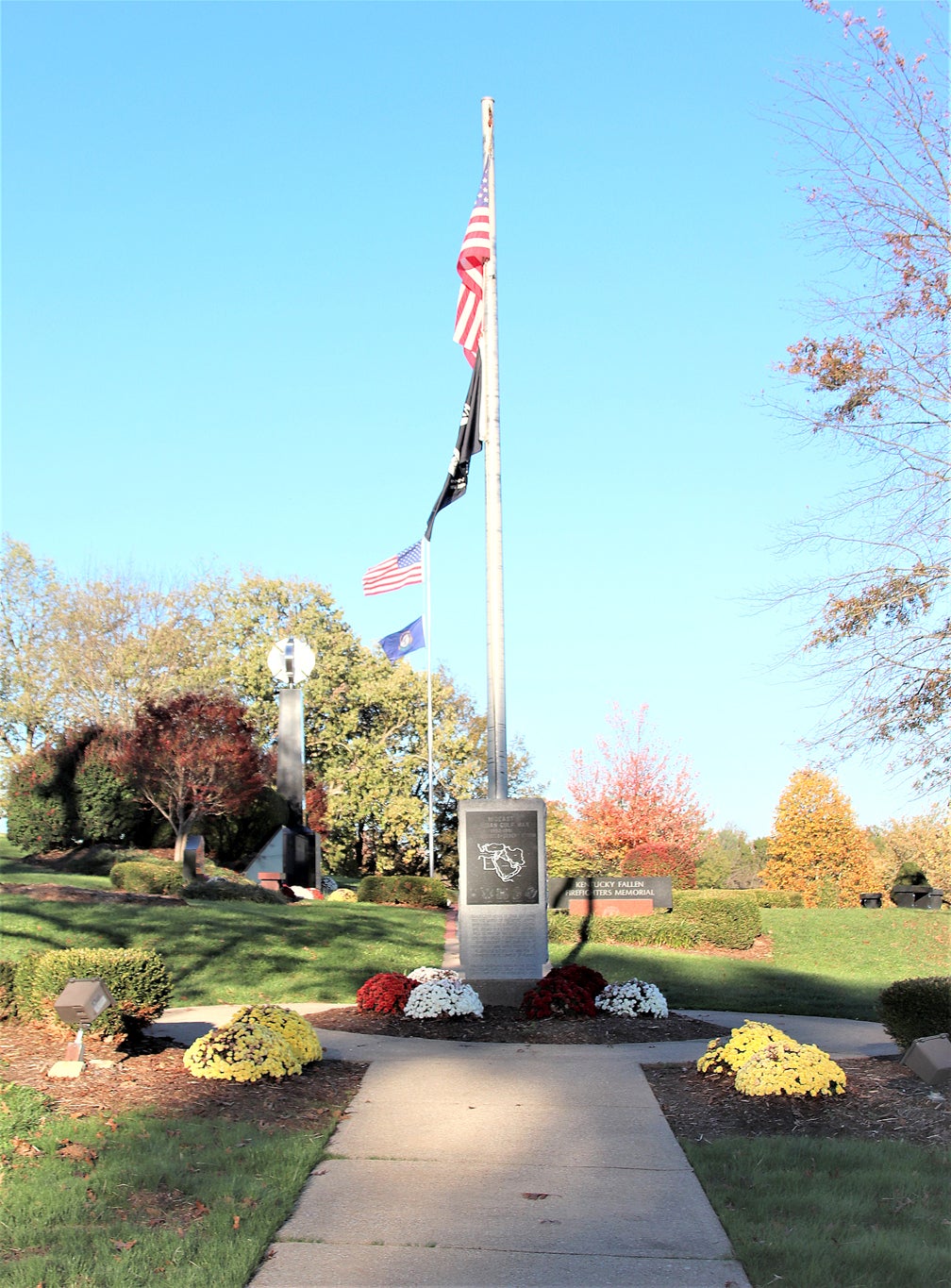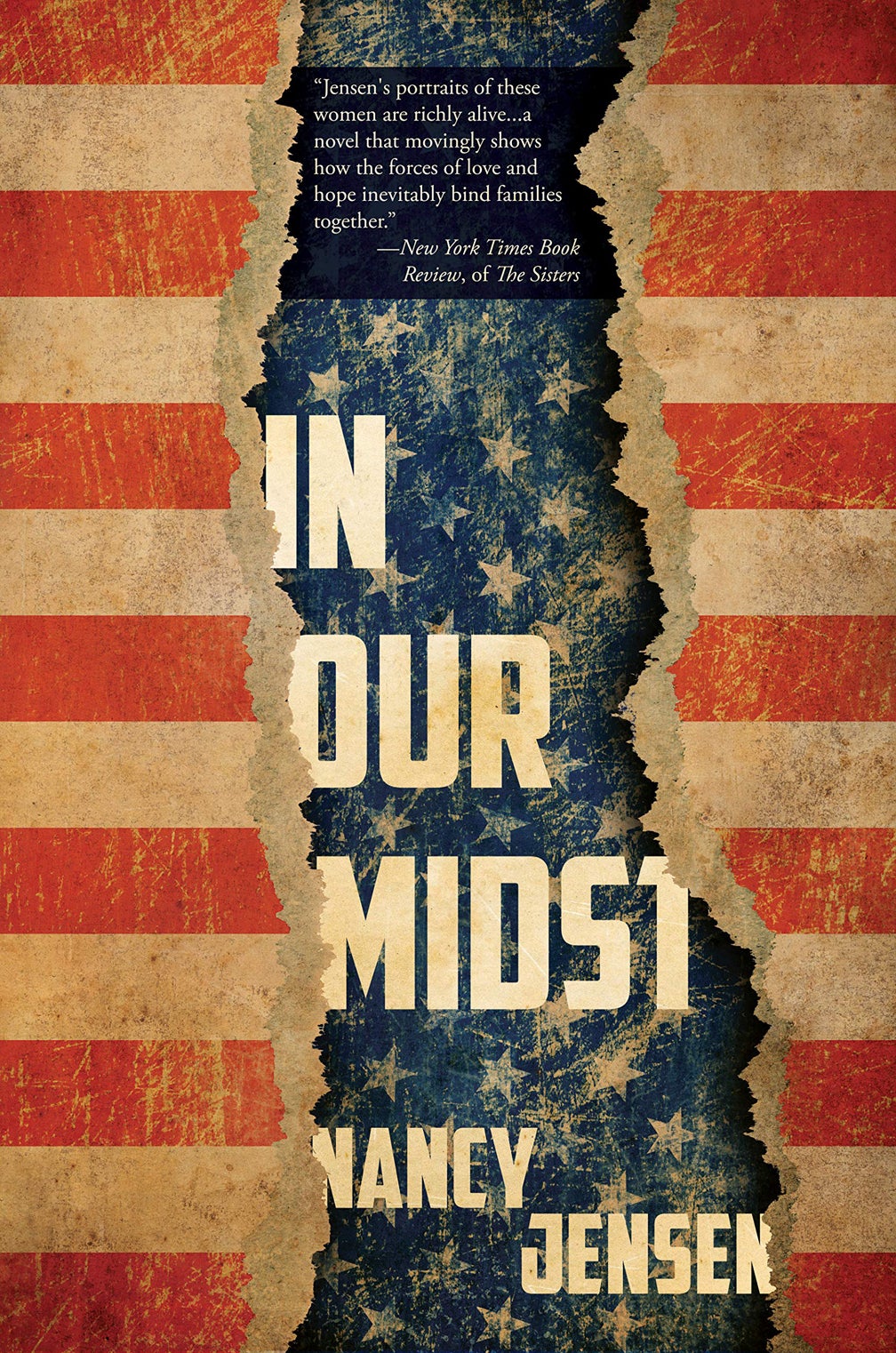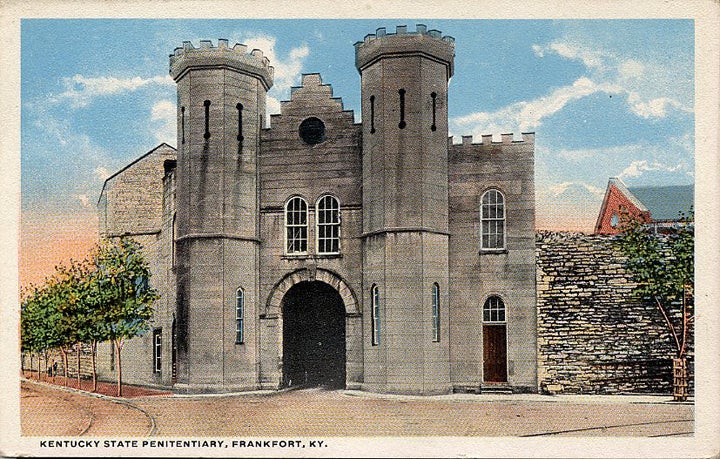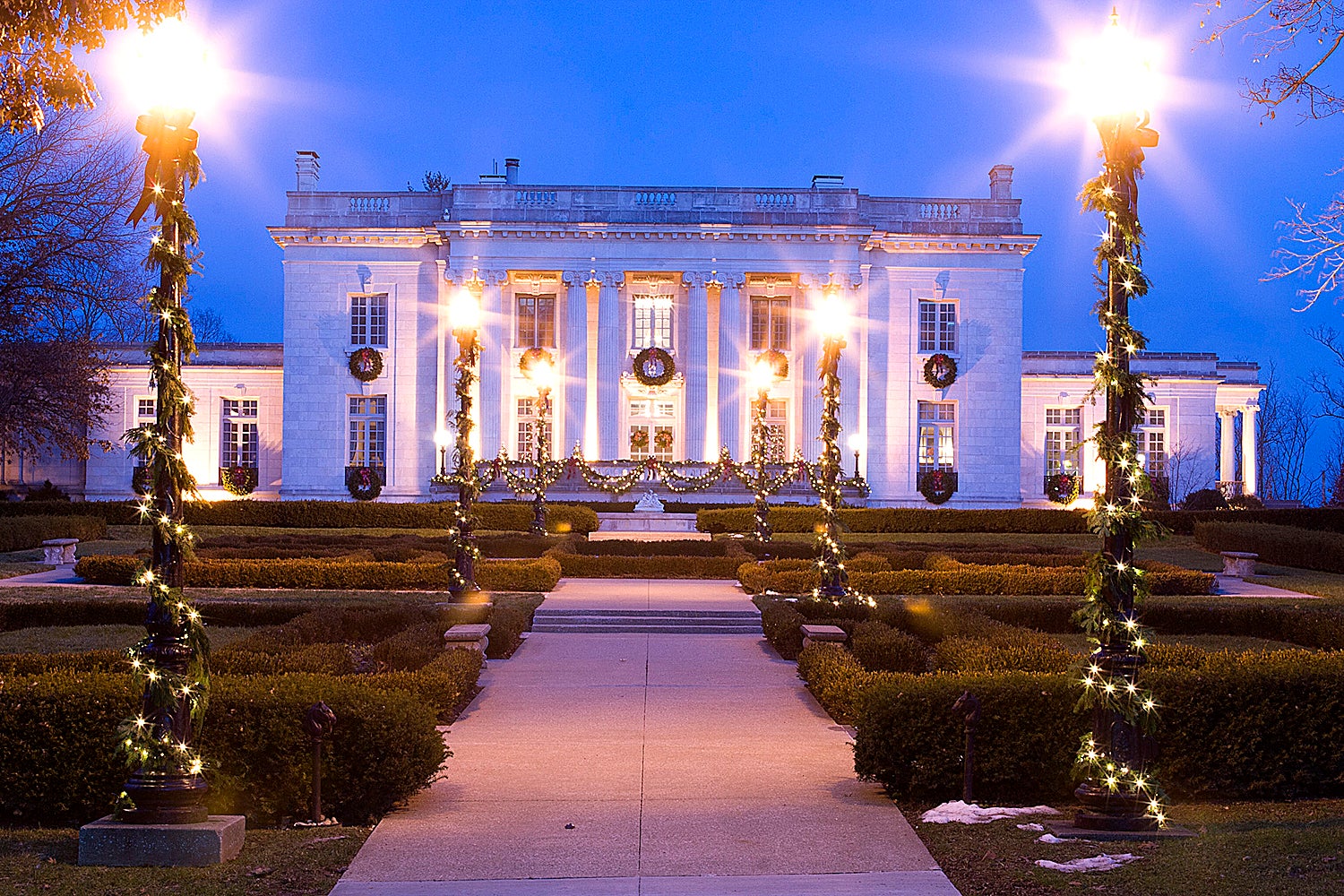By Charles H. Bogart
Thirty years ago, in 1990, the Gulf War started when on Aug. 2, 1990, Iraq invaded Kuwait. In response, the United States and other countries sent troops to protect Saudi Arabia.
The first U.S. troops arrived in Saudi Arabia on Aug. 7, 1990. First, there was Operation Desert Shield, from Aug. 2, 1990, to Jan. 17, 1991, during which the U.S. and its allies built up their combat strength. Then came Operation Desert Storm, from Jan. 17, 1990, to Feb. 28, 1991, during which time the U.S. and its allies drove the Iraqi troops out of Kuwait.
The United States committed to the Gulf War — not only its regular soldiers — but soldiers of the Army Reserve and the National Guard. Among the National Guard troops that deployed to Saudi Arabia was the 475th Mobile Army Surgical Hospital (MASH) stationed at Boone National Guard Center in Frankfort.
Commanding the 475th MASH at this time was Col. Joseph J. Dobner. Yes, Dr. Dobner. Also activated was the Army Reserve Frankfort-based 100th Division training component, which was sent to Ft. Knox, Kentucky, to assist in mobilization training.
Upon activation on Nov. 21, 1990, the 475th MASH consisted of 157 National Guard officers and enlisted men and women. On Nov. 24, 1990, the 475th MASH reported to Ft. Knox, Kentucky, its mobilization center. Here the unit was brought up to war strength by the attachment of 82 augmentees.
At Ft. Knox, the 475th MASH underwent refresher training and had its equipment updated in preparation for movement to a combat zone. In December 1991, the 475th MASH departed Ft. Knox for the Gulf War Zone.
Once in Saudi Arabia, the 475th MASH was assigned to Lt. Gen. Frederick M. Franks Jr.’s VII Corps. The 475th MASH became a Corps asset and was assigned to the 332nd Medical Brigade and placed under the operational control of the 341st Medical Group.
The mission assigned to the 475th MASH was to first provide direct battlefield surgical support to the American ground forces, and second of all to provide humanitarian relief to local natives.
Fortunately, U.S. military casualties during the course of the Gulf War were low and the 475th MASH did not have to treat a large number of American or allied wounded and sick. Instead of treating American soldiers, the 475th MASH, upon advancing into Kuwait and Iraq, found itself caring for wounded and sick Iraqi Prisoners of War (POWs). The unit treated more than 300 Iraqi POWs for wounds, battlefield trauma, malnutrition and disease. In addition, over 1,500 Iraqi Nationals were treated for war related injuries and various sickness.
During its time with the VII Corps, the 475th MASH suffered no casualties from enemy action. In early April 1991, the 475th was told to prepare for return stateside. They left Saudi Arabia by plane on April 30, 1991, and arrived in Frankfort on May 7, 1991. The unit was welcomed back to Frankfort by its citizens who lined U.S. 127 from I-64 to Minuteman Parkway, the entrance to Boone National Guard Center.
The 475th MASH was awarded three Campaign Streamers to attach to its unit flag for its service during Operation Desert Shield and Operation Desert Storm: Defense of Saudi Arabia 1990-1991; Liberation and Defense of Kuwait; and Southwest Asia Cease-fire 1991-1995. The U.S. government awarded each of the members of the 475th the National Defense Service Medal and the Southwest Asia Service Medal for their service during the Gulf War.
In recognition of the sacrifices made by the men and women of the 475th MASH, the 100th Division, and other citizens of Frankfort serving in the U.S. Armed Forces during the course of the Gulf War, the citizens of Frankfort erected a stone war memorial at the entrance to Juniper Hill Park so that future generations will recall the sacrifices of these Frankfort men and women.
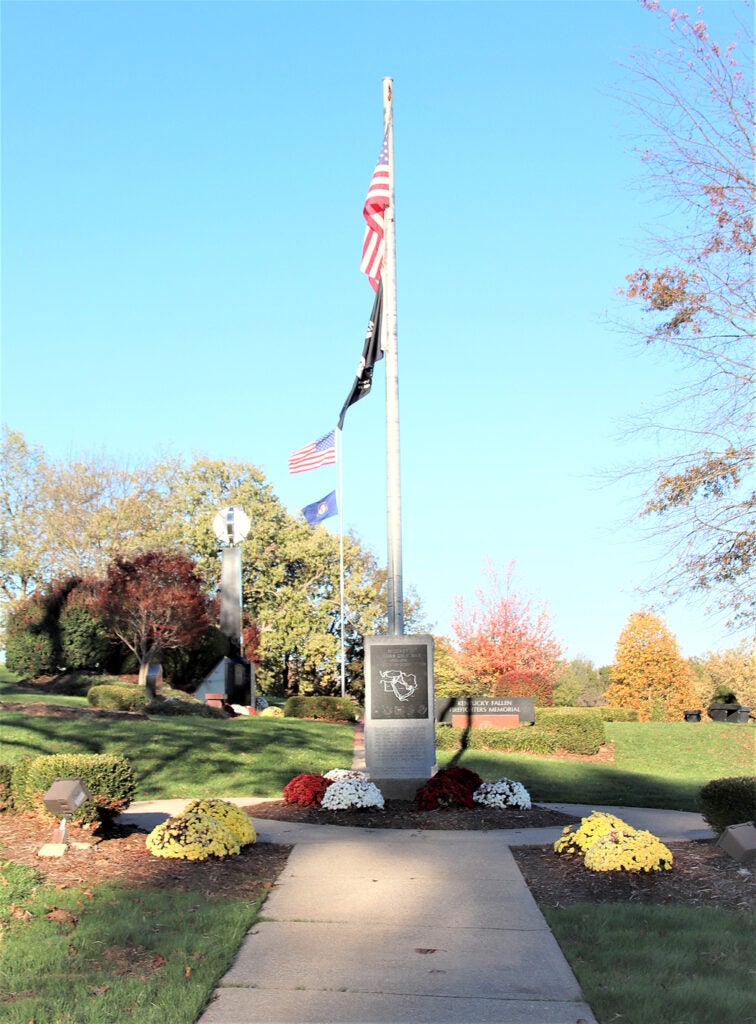
The Mideast Persian Gulf War 1990-1991 Memorial was erected in recognition of the part the men and women of Frankfort, who served in the Army, Air Force, Navy, Marine Corp and Coast Guard, played in the Gulf War. The base of the memorial has the following words on it:
“Dedicated in honor of over 200 brave men and women of the United States Armed Forces from Franklin County who served in combat or support role as part of the United Nations coalition forces in Operation Desert Shield/Desert Storm during the Persian Gulf War which defeated the aggressive actions of Iraq and liberated occupied Kuwait.”
The Capital City Museum has opened a temporary display on Frankfort and the Gulf War. The museum is looking for more memorabilia for display or their archives relating to the parts citizens of Frankfort played in the Gulf War and other post-Cold War conflicts.

